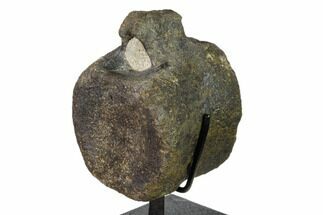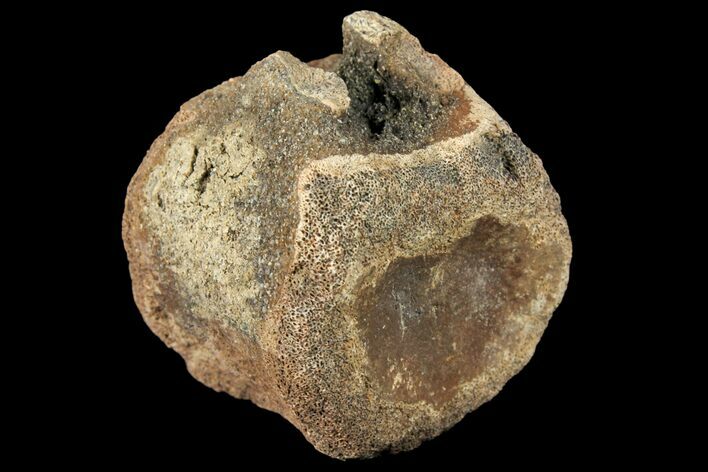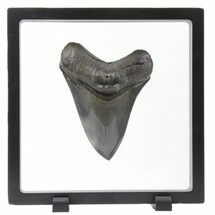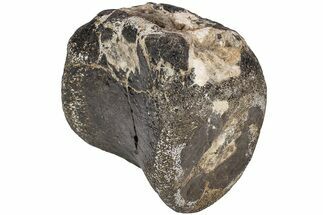This Specimen has been sold.
1.4" Fossil Hadrosaur Vertebra - Alberta (Disposition #000028-29)
First, a note on the legality of this fossil. Alberta has very strict laws pertaining to fossil collection. Fossils may not be removed from the province of Alberta without permission from the government. To gain ownership of a fossil, you must be issued a Disposition Certificate from Alberta's Royal Tyrrell Museum. Only a few fossil types are currently eligible for disposition: mostly ammonites, petrified wood, leaves and fossil oysters.
This specimen is part of a collection of dinosaur material that was collected by a single individual (Steve Walchina) decades ago prior to the current law. Because it was collected before the law went into effect, the collection was "grandfathered" in. The collection was reviewed by the Royal Tyrrell Museum and a disposition certificate issued for portions of it that were not considered scientifically significant. This moved the fossils into private ownership and allowed them to be removed from the province. The disposition certificate (#000028-29) is on file with the Royal Tyrrell Museum. This makes the small amount of Alberta dinosaur fossils we recently acquired from this collection some of the only legal Alberta dinosaur material on the market.
This specimen is part of a collection of dinosaur material that was collected by a single individual (Steve Walchina) decades ago prior to the current law. Because it was collected before the law went into effect, the collection was "grandfathered" in. The collection was reviewed by the Royal Tyrrell Museum and a disposition certificate issued for portions of it that were not considered scientifically significant. This moved the fossils into private ownership and allowed them to be removed from the province. The disposition certificate (#000028-29) is on file with the Royal Tyrrell Museum. This makes the small amount of Alberta dinosaur fossils we recently acquired from this collection some of the only legal Alberta dinosaur material on the market.
This is a nicely preserved, 1.4" tall Hadrosaur vertebra, collected from the Horseshoe Canyon Formation in Alberta, Canada. It comes from an unidentified species of Hadrosaur from the Upper Cretaceous, between 74-67 million years old.
Much of the cortical bone has weathered away, revealing the preserved osteons (bone cells).
The Horseshoe Canyon Formation yields many different species of Hadrosaur, including Edmontosaurus, Hypacrosaurus, Parksosaurus and Saurolophus. Due to the similarities of these dinosaurs and the unrecorded specifics from the original collector, individual bones, especially of the feet and hands, do not have a guaranteed identification.
Hadrosaurs
are frequently referred to as duck-billed dinosaurs and are members of the Ornithischian family Hadrosauridae. They were fairly common herbivores that roamed Asia, Europe, and North America during the Upper Cretaceous Period. Many species of Hadrosaurs had distinctive crests on their heads, some of which had air-filled chambers that may have produced a distinct sound. These crests may have been used for both audio and visual display purposes.
SPECIES
Unidentified Hadrosaur
LOCATION
Alberta, Canada
FORMATION
Horseshoe Canyon Formation
SIZE
1.4 x 1.2"
CATEGORY
SUB CATEGORY
ITEM
#134462
We guarantee the authenticity of all of our specimens.
 Reviews
Reviews














